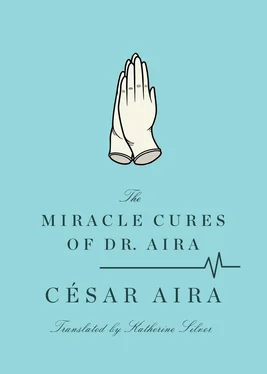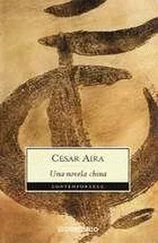PRINGLES, 6 SEPTEMBER 1996
“Aira is one of the most provocative and idiosyncratic novelists working in Spanish today, and should not be missed.”
— The New York Times Book Review
“Aira is a master at pivoting between the mundane and the metaphysical.”
— The Millions
“An improvisatory wildness that opens up possibilities where there had seemed to be brick walls.”
— The Paris Review
AN EPISODE IN THE LIFE OF A LANDSCAPE PAINTER
“César Aira’s strange and arresting novel, in the tradition of Jorge Luis Borges and W. G. Sebald. . a memorable performance whose tone and oddly compelling vision are distinctly Aira’s own.”
— Los Angeles Times
“Aira’s most dazzling novel to be published in English thus far.”
— The New York Review of Books
“Astonishing. . a supercharged Céline, writing with a Star Wars laser sword, turning Don Quixote into Picasso.”
— Harpers
“Multifaceted and transporting. . I get so absorbed that upon finishing I don’t remember anything, like a complex cinematic dream that dissipates upon awakening.”
— Patti Smith
GHOSTS
“An incitement to the sensuality of thought, of wonder, of questioning, of anticipation.”
— The Los Angeles Times
“Exhilarating. Cesar Aira is the Duchamp of Latin American literature. Ghosts is an exercise in queasiness, a heady, vertigo-inducing fantasia.”
— The New York Times Book Review
“Between hauntings, Ghosts is filled with Aira’s beautifully precise observation of the texture of everyday life.”
— The Millions
“Aira conjures a languorous, surreal atmosphere of baking heat and quietly menacing shadows that puts one in mind of a painting by de Chirico.”
— The New Yorker
HOW I BECAME A NUN
“Oblique and darkly humorous. Through the marginal, Aira imaginatively explores the foibles of the human condition.”
— The Harvard Review
“Aira is a man of multiple, slipping masks, and How I Became a Nun is the work of an uncompromising literary trickster.”
— Time Out
“A foreboding fable of life and art.”
— Publishers Weekly
THE LITERARY CONFERENCE
“Aira’s novels are eccentric clones of reality, where the lights are brighter, the picture is sharper and everything happens at the speed of thought.”
— The Millions
“Disarming. . amusing.”
— The New Yorker
“César Aira’s tale of mad scientists, literary doubles and world domination offers a gloriously absurdist example of the ‘constant flight forward’ that powers his inimitable fiction.”
— The National
THE SEAMSTRESS AND THE WIND
“Genius.”
— Ploughshares
“A beautiful, strange fable. . alternating between frivolity, insight, and horror.”
— Quarterly Conversation
VARAMO
“Aira seems fascinated by the idea of storytelling as invention, invention as improvisation and improvisation as transgression, as getting away with something. ”
— The New York Times Book Review
“A lampoon of our need for narrative. No one these days does metafiction like Aira.”
— The Paris Review












